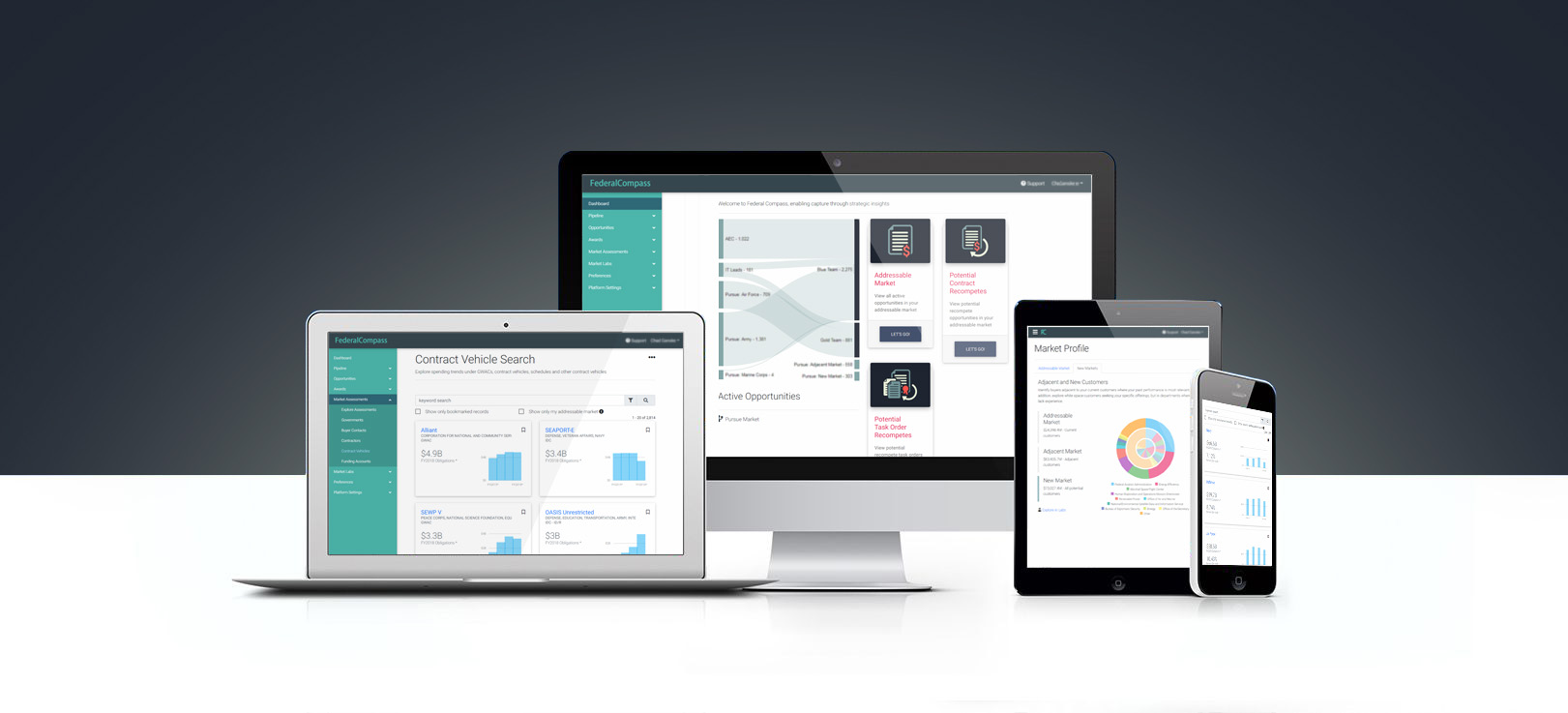
Opportunity Tools
& Market Intelligence
for Government Contractors
Implement your winning opportunity strategy with the most comprehensive federal market intelligence platform.
Contact Sales12/06/2019
When developing our pricing model, we compared the traditional approach of our competitors to the pricing strategies implemented by innovative and disruptive SaaS companies. We opted to break from industry tradition by embracing modern pricing to support our goal of challenging the status quo.
Now, several months post-launch, we wanted to test our subjective notions of creating a better cost-to-value equation. We engaged one of our first customers to determine the impact our model had on their total cost of ownership.
A professional and technology services contractor with strong annual revenue growth since FY14.
Annual subscription for twelve seats.
The customer cited four examples of how they reduced market intelligence investments and increased productivity and determined that Federal Compass' pricing model and capabilities directly led to these improvements.
Reduced market intelligence costs by $45k annually, by switching to Federal Compass.
We found that two of these reductions were quantifiable, while two reflected the qualitative and abstract benefits of their subscription.
Previously, the customer had entered into a multi-year, enterprise-wide contract for $38k per year. They noted the subscription included limited access that prevented them from obtaining critically important information.
Their Federal Compass subscription included a mix of twelve seats, a cost of $13k annually based on our monthly pricing model. They opted for an annual subscription that included a two-month discount, reducing their total subscription cost to $10.5k or a savings of nearly $28k over their previous contract. Increased access to information, not included in their previous contract, represented a significant selling point for this customer.
Over the past five years, this customer engaged with consulting firms and other service providers in support of strategic planning and tactical pursuits. These engagements ranged between $20-$25k with deliveries that quickly grew stale.
Within the mix of twelve seats, the contractor selected five strategic subscriptions. They found that our on-demand capabilities could eliminate nearly $20k in annual expenditures for external support.
Under their previous enterprise-wide contract, a large number of users was essential to achieving a positive cost-to-value equation. After conducting an internal audit of users, the company found that less than one-third of those with access used the subscription at least once a month.
With Federal Compass, the company had a scalable solution. They initially on-boarded key users, with the option to add new users as needed. The ability to assign a specific tier of access to each user ensured that the company only paid for information required by each user.
Due to subscription and product-related limitations, the company's internal resources were required to augment research gaps. These resources invested valuable time filling capability gaps and were unavailable to support other organizational needs.
After two months of becoming a customer, the company noticed a significant change in the availability of internal resources. They credited this shift to functionality that allowed less experienced users to acquire in-depth information and a robust set of analytical tools that eliminated a significant amount of supplemental research.
While not all the benefits were quantifiable savings, the company identified four advantages that reduced costs, enhanced productivity, and increased the availability of critical resources. Switching to Federal Compass resulted in the company reducing market intelligence costs by $45k annually.
To determine if Federal Compass can reduce costs and increase your productivity visit us today.